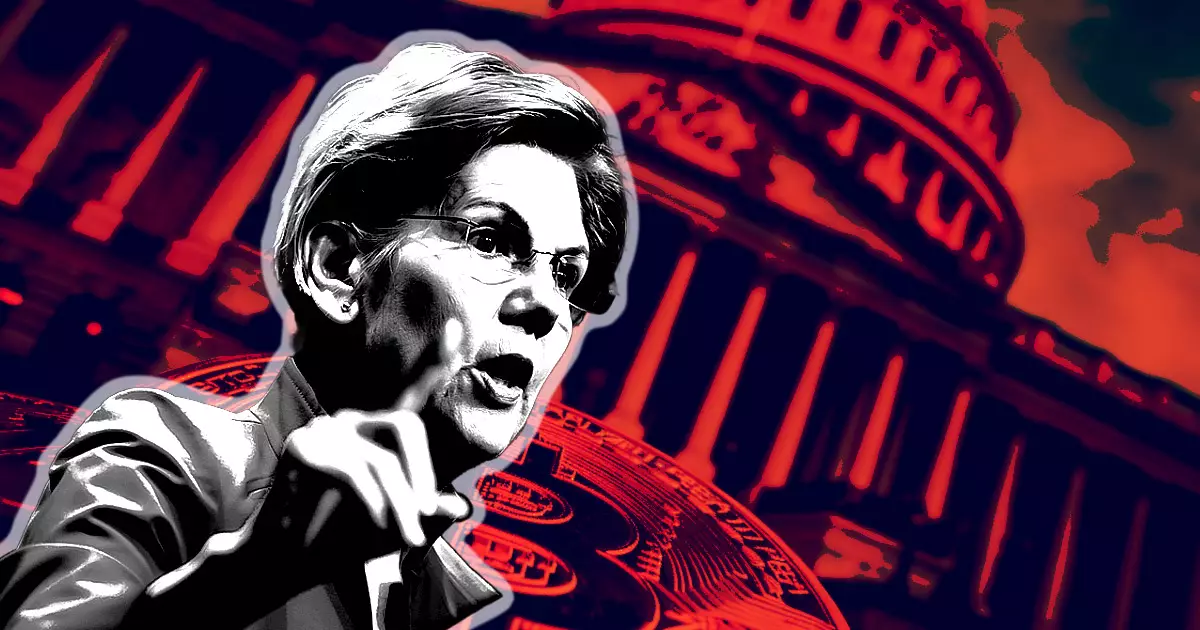Sen. Elizabeth Warren recently drew criticism from the cryptocurrency community for her disparaging remarks about the industry. In a post on X (formerly Twitter), she referenced a report from the U.S. Government Accountability Office (GAO), which alleged that “rogue nations” were using cryptocurrency to evade sanctions and pose threats to national security. However, many in the crypto community argue that Sen. Warren’s statements are just the latest in a series of attempts to paint the entire crypto sector in a negative light. They believe that her rhetoric oversimplifies the complexities of the industry and undermines its potential positive contributions.
The GAO released a report last December that focused on the use of cryptocurrencies, particularly Bitcoin, by foreign states subject to U.S. sanctions. The agency later published a blog post on January 16th, highlighting the steps the government was taking to address the concerns raised in the report. According to the report, cryptocurrencies were indeed exploited by nations under sanctions to circumvent restrictions. The report specifically mentioned how economic sanctions, such as limiting access to the U.S. financial system or freezing assets within U.S. jurisdiction, could be evaded using Bitcoin and other virtual currencies. The report also acknowledged that cryptocurrencies’ decentralized nature and public ledger system could enable U.S. agencies to trace such transactions, potentially aiding in the identification of illicit actors.
Sen. Warren’s remarks triggered strong reactions within the cryptocurrency community, prompting members to fact-check her statements using X’s Community Notes feature. Paul Grewal, the Chief Legal Officer at Coinbase, dismissed the entire GAO report for lacking “comparative analysis.” He pointed out that buried within the report were admissions that digital assets were not an efficient way to circumvent sanctions. Grewal’s comment suggests that Sen. Warren cherry-picked information to support her negative view of cryptocurrencies.
Perianne Boring, CEO of the Digital Chamber, also took issue with Sen. Warren’s claims, arguing that her proposed bill amounts to a backdoor ban on crypto. Boring emphasized the importance of honesty and transparency, stating that pushing technology overseas only undermines national security. Various voices within the crypto community echoed these sentiments, accusing Sen. Warren of being “anti-innovation.” They highlighted the fact that many cryptocurrency companies are already operating in compliance with local laws, challenging the narrative of rampant non-compliance that Sen. Warren seems to be promoting.
Critics argue that Sen. Warren’s criticism oversimplifies the complexities of the cryptocurrency industry. They contend that her blanket statements ignore the numerous positive contributions that cryptocurrencies and blockchain technology have made to various sectors. For example, cryptocurrencies have facilitated financial inclusion for the unbanked populations around the world, enabling access to financial services and empowering individuals in developing countries. Blockchain technology has the potential to revolutionize industries such as supply chain management, healthcare, and voting systems, improving transparency, efficiency, and security.
It is essential to acknowledge that there may be individuals or groups who exploit cryptocurrencies for illicit activities, as is the case with any financial system. However, the crypto community argues that these instances should not overshadow the transformative potential of the industry. They believe that instead of vilifying cryptocurrencies, policymakers should focus on fostering a regulatory framework that promotes responsible innovation while addressing legitimate concerns.
The controversy surrounding Sen. Elizabeth Warren’s remarks about the crypto industry highlights the divide between policymakers and the cryptocurrency community. While the GAO report does identify instances of cryptocurrencies being used to evade sanctions, critics argue that Sen. Warren’s rhetoric oversimplifies the complexities of the industry and fails to acknowledge its positive contributions. The crypto community believes that a balanced and nuanced approach is needed to regulate the industry effectively, fostering innovation while addressing legitimate concerns. As the crypto industry continues to evolve, it is essential for policymakers to engage with industry experts and stakeholders to create a regulatory environment that maximizes the potential benefits of cryptocurrencies and blockchain technology.



Leave a Reply